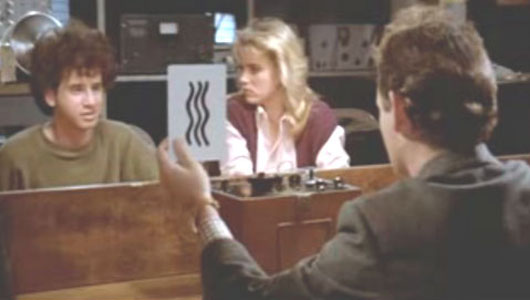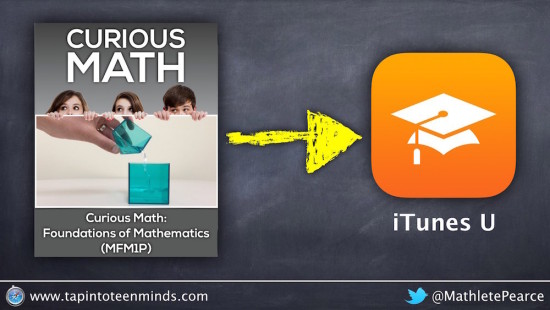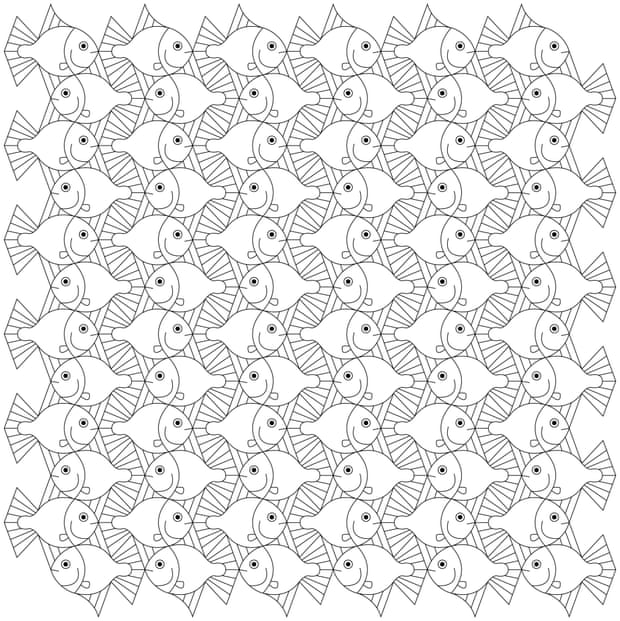 In general, I am not a fan of math tricks. I used to love them but have more recently accepted that they are just reinforcing algorithms over understanding. Recently I have been browsing Quora. This is a site where you can ask any question and hope to get a crowdsourced answer. It's kind of like Ask.com but with a better clientele. This question came up the other day "What's a math trick that is not very well known?" There were a bunch of responses, some that I don't know if I would classify as tricks but there were definitely some properties that I had not seen. But I started to think that some of these could be used to have students practice things like using formulas. I like the one about estimating square roots (see image). That could be used in grade 8 as a calculation task, for example. Take a look at some of the others
In general, I am not a fan of math tricks. I used to love them but have more recently accepted that they are just reinforcing algorithms over understanding. Recently I have been browsing Quora. This is a site where you can ask any question and hope to get a crowdsourced answer. It's kind of like Ask.com but with a better clientele. This question came up the other day "What's a math trick that is not very well known?" There were a bunch of responses, some that I don't know if I would classify as tricks but there were definitely some properties that I had not seen. But I started to think that some of these could be used to have students practice things like using formulas. I like the one about estimating square roots (see image). That could be used in grade 8 as a calculation task, for example. Take a look at some of the othersCurriculum Tags: Gr7, Gr8, MPM1D, MFM1P, MFM2P
https://www.quora.com/Whats-a-math-trick-that-is-not-very-well-known
One of the main reasons that kids need to study math is that it is the language of science. And often one of the things that is glossed over is how much data analysis is used in science. Unfortunately students will only get a rigorous treatment of data analysis if they take Grade 12 Data Management. Anything else is kind of glossed over in their science classes. That's too bad because it seems like there might be a crisis in the science world about misuse of data (either purposely or accidentally). At the What's the Point podcast they recently did a show where they talked about all the issues that were going on in the science world. This would be a nice discussion starter for students in Data Management
Curriculum Tags: MDM4U
http://fivethirtyeight.com/datalab/podcast-bad-incentives-are-blocking-better-science/
 Maybe you remember near the beginning of Ghostbusters, Dr. Peter Vinkmen is doing some psychic testing on some volunteers. Well here's an app that you can use to test that "psychic ability" with your students in the name of probability. This is the Zener Card Test. That is, this is a random image generator and you could use it to collect data with students, study the idea of a running probability, talk about tree diagrams etc. All with an event that has a 20% chance of happening. Fun stuff
Maybe you remember near the beginning of Ghostbusters, Dr. Peter Vinkmen is doing some psychic testing on some volunteers. Well here's an app that you can use to test that "psychic ability" with your students in the name of probability. This is the Zener Card Test. That is, this is a random image generator and you could use it to collect data with students, study the idea of a running probability, talk about tree diagrams etc. All with an event that has a 20% chance of happening. Fun stuffCurriculum Tags: Gr7, Gr8, MBF3C, MDM4U
http://www.realsuperpowers.com/zener-card-test
 Though I have mentioned many of these tasks here before, I like the fact that @mathletepearce and @mrorr_geek have collaborated to make a single resource that brings together many of their activities in the form of an iTunesU course called Curious Math for Grade 9 Applied math. If you are running an iOS device then it's a great place that combines some great resources and if you don't then Kyle's post below does enough that you could probably use it.
Though I have mentioned many of these tasks here before, I like the fact that @mathletepearce and @mrorr_geek have collaborated to make a single resource that brings together many of their activities in the form of an iTunesU course called Curious Math for Grade 9 Applied math. If you are running an iOS device then it's a great place that combines some great resources and if you don't then Kyle's post below does enough that you could probably use it.Curriculum Tags: MFM1P
https://tapintoteenminds.com/curious-math-on-itunesu/
 A new book by Alex Belos is a mathematical colouring book. That is, he has taken many images related to various math topics and encouraged people to colour them. See the link below for four examples (tessolation, sudoku, tiling, Fibonacci)
A new book by Alex Belos is a mathematical colouring book. That is, he has taken many images related to various math topics and encouraged people to colour them. See the link below for four examples (tessolation, sudoku, tiling, Fibonacci)Curriculum Tags: All
http://www.theguardian.com/books/2015/sep/17/nested-fish-and-golden-triangles-adult-colouring-and-the-beauty-of-maths
 "John Horton Conway is a cross between Archimedes, Mick Jagger and Salvador Dalí. For many years, he worried that his obsession with playing silly games was ruining his career – until he realised that it could lead to extraordinary discoveries". Thanks to @uWaterloo_CEMC for this one
"John Horton Conway is a cross between Archimedes, Mick Jagger and Salvador Dalí. For many years, he worried that his obsession with playing silly games was ruining his career – until he realised that it could lead to extraordinary discoveries". Thanks to @uWaterloo_CEMC for this oneCurriculum Tags: All
http://www.theguardian.com/science/2015/jul/23/john-horton-conway-the-most-charismatic-mathematician-in-the-world
In calculus, when we introduce the idea of the limit, it is often hard to convey the concept of something that is infinitesimally small. Numberphile has tried to do it with their latest video.
Curriculum Tags: MCV4U
https://www.youtube.com/watch?v=WYijIV5JrKg
I was reminded of this earlier this week and it never gets old. Perhaps something you could use if you are teaching about money (or even percents). The idea is the difference between 0.002 dollars and 0.002 cents. The first is a short version and the second is the full length
Curriculum Tags: Gr7, Gr8, MAT1L, MAT2L
Want to get kids interested in calculating volume? Thanks to @mrorr_geek for this one
Curriculum Tags: All
https://twitter.com/MrOrr_geek/status/644820931668496384/photo/1
Wowsers!! #mtbos pic.twitter.com/45KI1zoSpy
— Jon Orr (@MrOrr_geek) September 18, 2015
Some more math fails here. The first is from this urinal claim. The idea that this urinal saves 88% more water than a 1 gallon urinal implies that a 1 gallon urinal saves water but compared to what. The other things in this post also deal with statements that don't make mathematical sense. Take a look.
Curriculum Tags: All
http://thearmchairmba.com/tag/88-more-water/
Another math fail for you all. When you click on the link and read the comments, the fails continue there as well
Curriculum Tags: All
http://imgur.com/gallery/KgsYK
This would be good in any Data Management class when talking about bias (obviously)
Curriculum Tags: MDM4Uhttp://mentalfloss.com/article/68705/20-cognitive-biases-affect-your-decisions









No comments:
Post a Comment